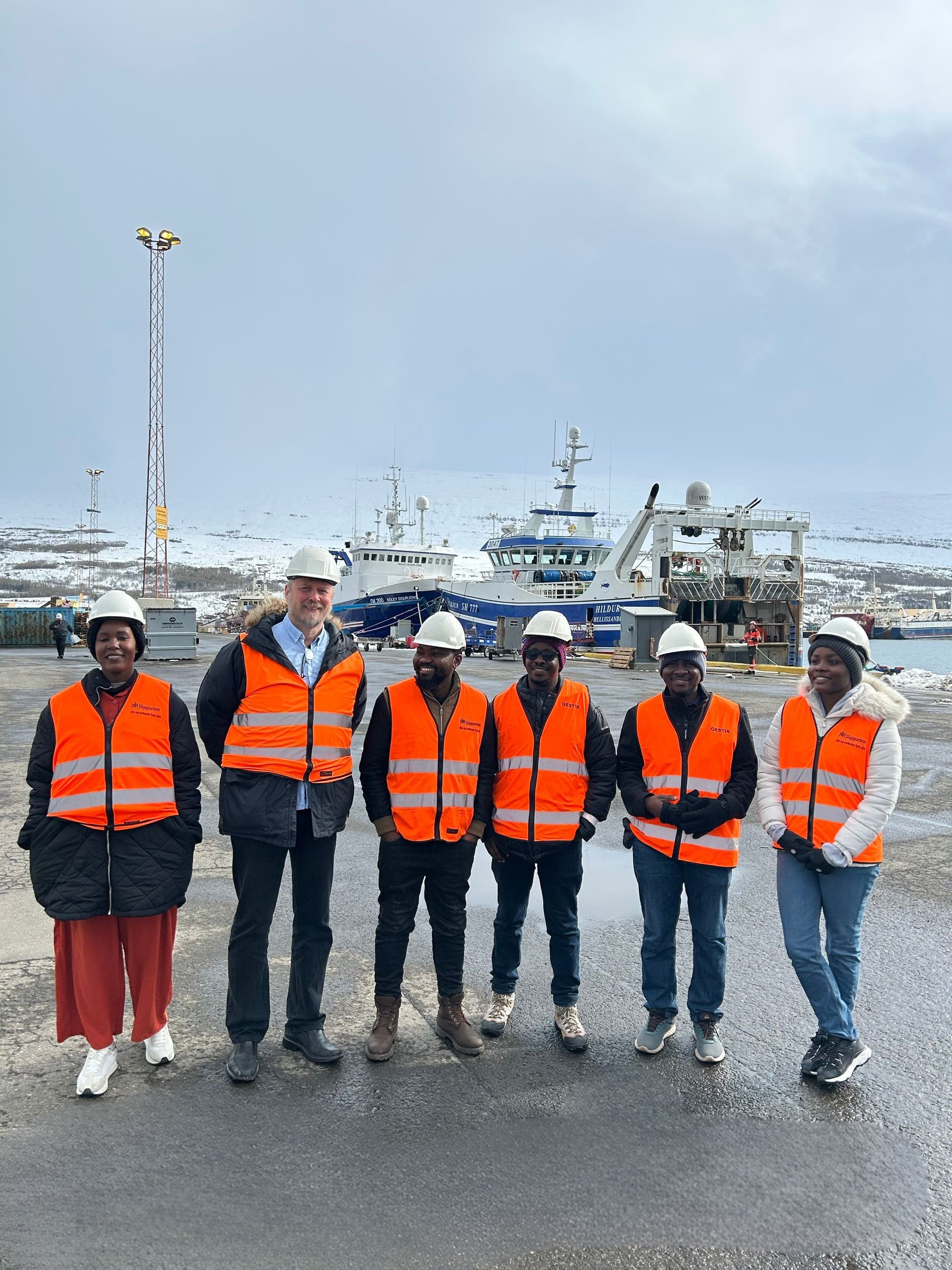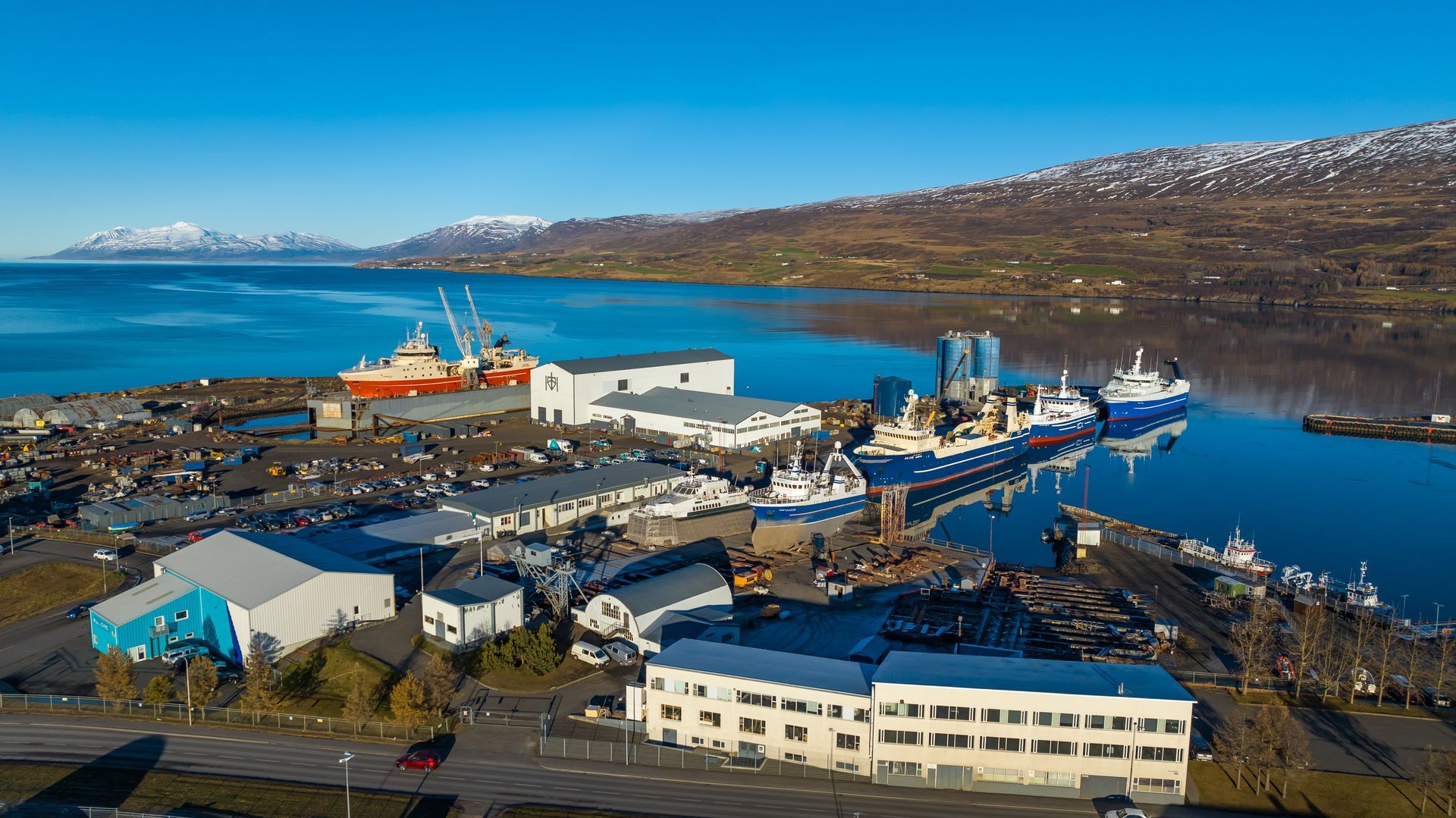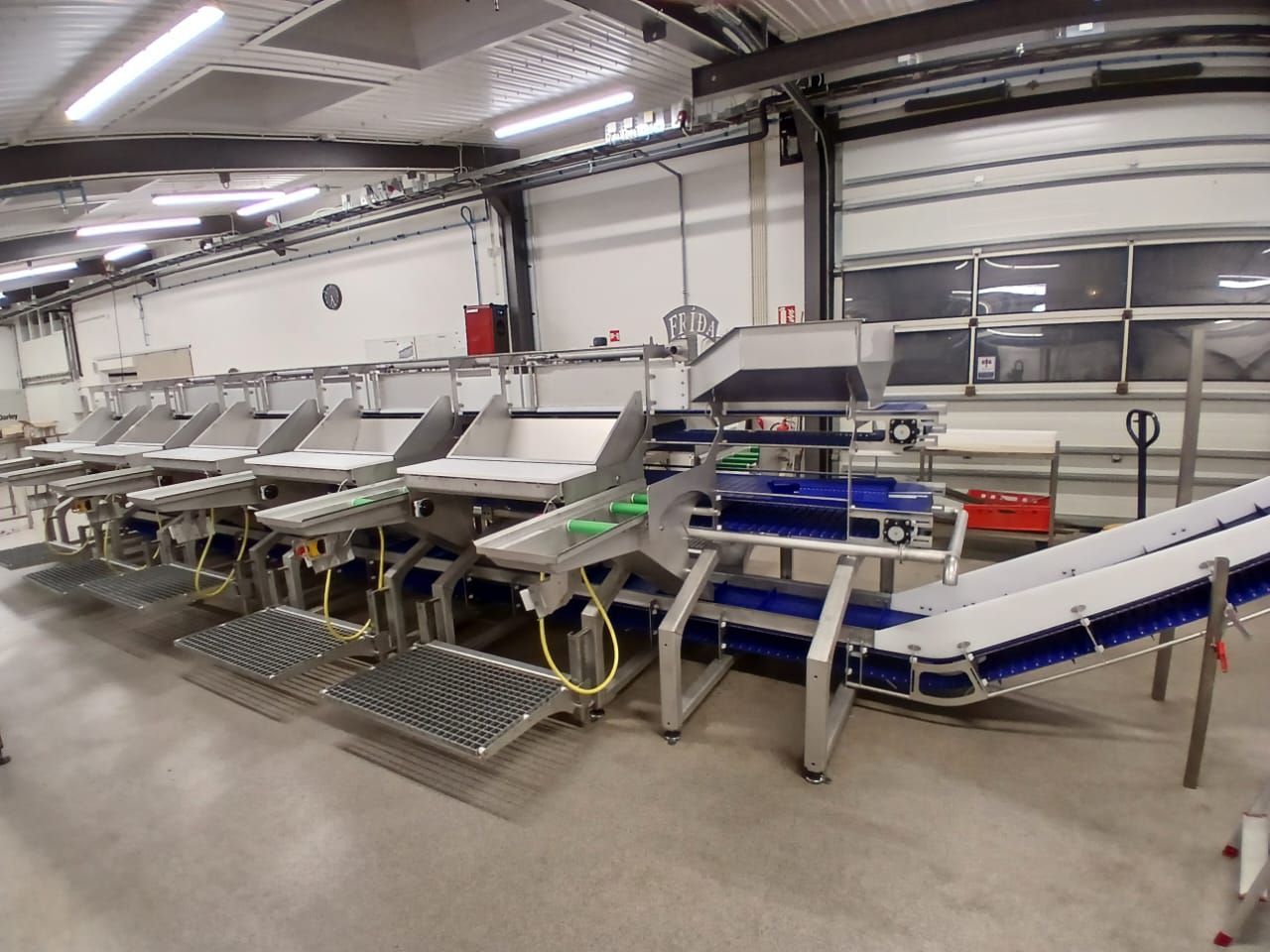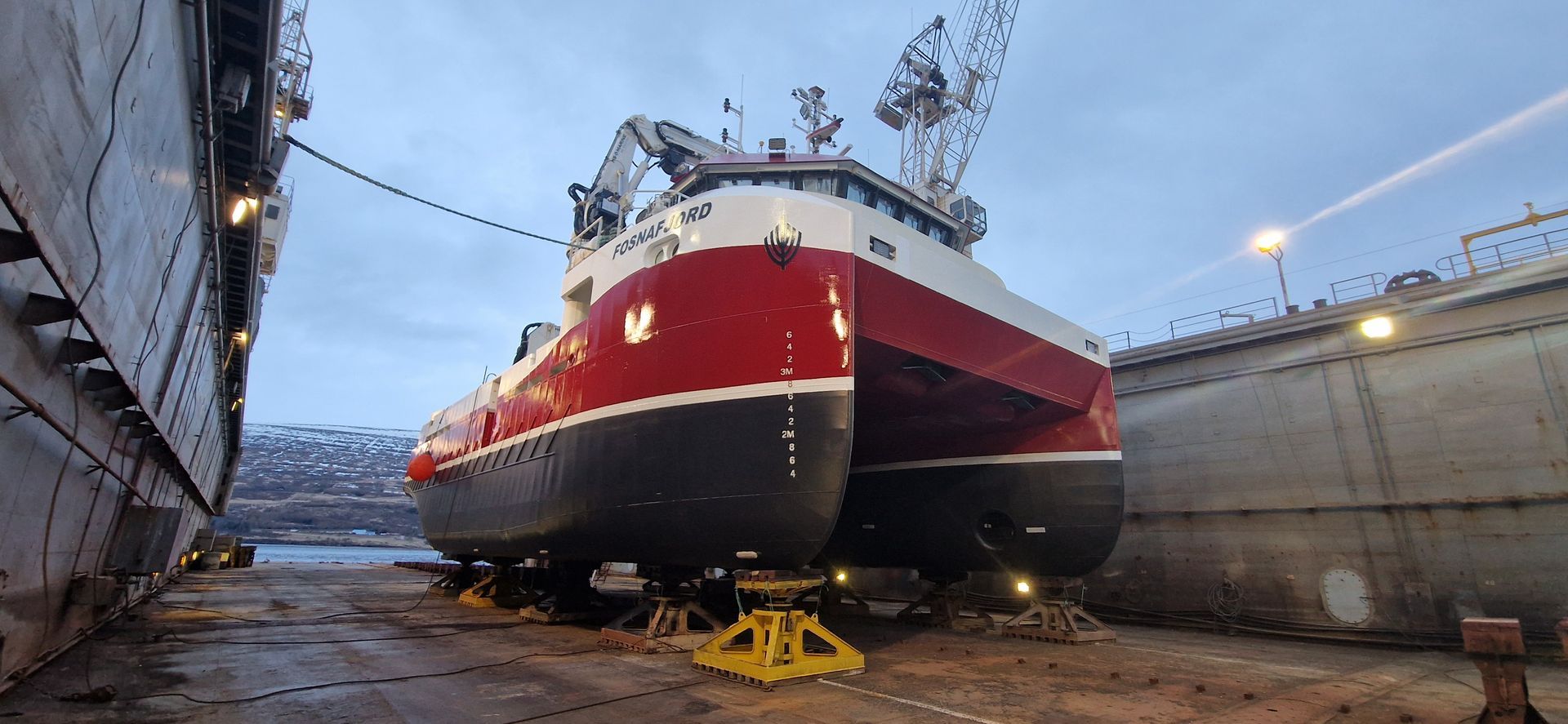GRÓ students learn about Icelandic technology and services for the fishing industry.
Students from the GRÓ Fisheries Training Programme visited Slippurinn in Akureyri and gained insight into the company’s operations as part of their specialized studies in fisheries management.

Students from the GRÓ Fisheries Training Programme, along with Hreiðar Þór Valtýsson, Associate Professor at the University of Akureyri, during a visit to Slippurinn in Akureyri.
Students from the GRÓ Fisheries Training Programme, accompanied by Hreiðar Þór Valtýsson, Associate Professor at the University of Akureyri, recently visited Slippurinn in Akureyri. The students, who come from five different African countries, were given the opportunity to learn about the company’s operations and took part in a detailed tour of the shipyard facilities.
The visitors were Ben Kiddu from Uganda, Frank Kabitina from Tanzania, Funny Mkwiyo and Kelvin Mkwinda from Malawi, and Nelly Kerebi from Kenya. This group is enrolled in the Fisheries Policy and Management line of study, taught at the University of Akureyri under the leadership of Hreiðar Þór Valtýsson.
The GRÓ Fisheries Training Programme, also known as the GRÓ Fisheries Training Programme, is one of four specialized training schools in Iceland operating under Iceland’s development cooperation initiatives. The Fisheries Training Programme is divided into four lines of study, one of which is based in Akureyri and focuses on fisheries management in a broad context.
The students, who are in Akureyri from January to May until graduation, are carefully selected, well-educated professionals who often work in public institutions or ministries in their home countries—equivalent to Iceland’s Directorate of Fisheries. The programme emphasizes a comprehensive understanding of the fisheries value chain, extending well beyond traditional quota systems.
The visit to Slippurinn was an important part of their studies, offering insight into practical aspects of the fisheries sector and how services to fishing companies are organized and delivered in Iceland. Such field visits are an essential component of the training, giving students the chance to see how academic knowledge is applied in real-world settings.
This visit highlights the importance of international collaboration in the field of fisheries and fisheries management, where Icelandic expertise and experience are shared with specialists from developing countries. The knowledge and experience the students gain in Iceland will be of great value when they return home and contribute to shaping and developing fisheries policy in their respective countries.






